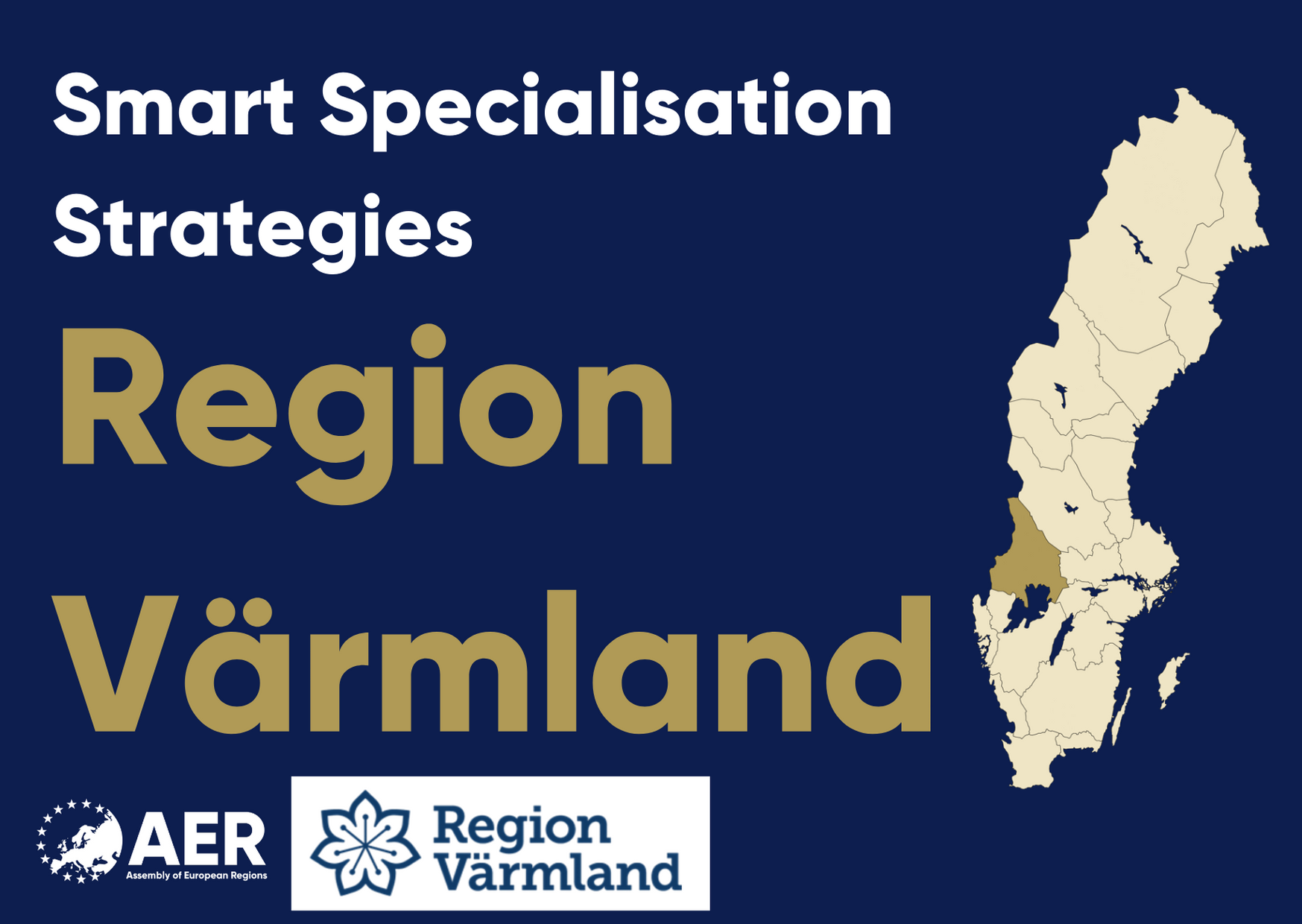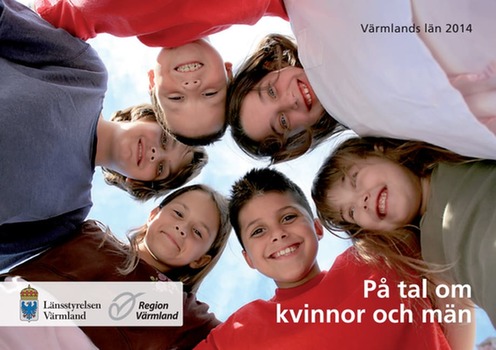 Share this!
Share this!The ongoing COVID-19 pandemic led to the cancellation of the AER Spring Committee Plenaries in Covasna County, Romania. The debate on “Smart specialisation strategies in rural areas, inclusion & wellbeing” could therefore not go ahead as planned. In order to harness the knowledge and expertise of our membership, AER is sharing content from speakers online instead.
In the below article, Kenneth Johannesson, Committee 2 Vice President for Health Innovation shares experience from Värmland (SE) on Smart Specialisation.
Welcome to Rural Värmland…
The Värmland region is part of North Central Sweden. Värmland borders Norway and the Oslo region and is thus a border region in the EU. Proximity to Oslo is an important condition for business and employment. The population of the region in 2014 was 274,691 inhabitants and the population grew by 0.5% from 2009 to 2014.
Värmland is facing important challenges, such as slow population growth, a low level of education, low wages and a low degree of employment compared to the Swedish average. Companies in Värmland are dependent on good communications due to the long distances to the metropolitan regions. Compared with other regions, Värmland is home to large tracts of forestland, which is promoted as an asset for the region and its forest industry in the Värmland strategy. The public sector provides most of the jobs in Värmland, followed by the manufacturing and steel industries and retail trade industry.
The labour market is gender-segregated both horizontally and vertically, which means that women and men find themselves in different sectors and industries, and in different positions within one and the same industry or workplace. In the case of business and entrepreneurship, most men in Värmland operate businesses in farming, forestry and fishing, while most women run companies offering cultural and personal services.
Defining Smart Specialisation in Värmland
The goal of smart specialisation in Värmland is to create new good jobs and sustainable and inclusive growth in Värmland. It is a holistic strategy that involves citizens, industry, the business community, municipal councils, the county council and the region of Värmland.
In short, smart specialisation involves learning how to prioritize and invest in innovations in order to bolster Värmland’s competitiveness. This is achieved by profiling the business and research sectors of Värmland, defining the areas of specialisation, as well as forming collaborative partnerships in Europe to successfull network and influence European policies.It is important that it is a comprehensive process where actors understand the importance of the strategy that they are creating.
Värmland has a number of priorities when it comes to Smart Specialisation, they include:
Leading the way for gender equality…
Värmland is the first region in Europe to have conducted a gender analysis study and undertaken a conscious gender-mainstreaming of the strategy for smart specialisation. In this regard, Värmland stands out as a pioneer for gender equality.
Services that create value for users
Given the progress already made in Värmland within research related to service innovation, service design and servitization, we are continuing to develop research in order to enhance the abilities of private and public actors to contribute to value-creation for customers, users and society as a whole.
Forest-based Bioeconomy
A thriving bioeconomy is demonstrated throughout Värmland through innovation and also by increasing the selection and demand for forest-based products and services. At the same time, we blaze a trail to convert to a fossil-free and sustainable society. Our fundamental strength is a sustainable forest industry with high-quality raw materials. Forest industry processes and products are the spearhead of our industries.
Digitalisation of Welfare Services;
We are developing and testing welfare services in actual environments with users: women, men, girls and boys as co-creators to provide varying types of solutions, many of which are digital. The public sector is an important user and producer of these processes. This results in better and more efficient care, education and other social services and ultimately happier, more competent and healthier citizens.
Advanced Manufacturing and Complex Systems;
We develop and offer energy- and resource-efficient system solutions and components for – primarily – heavy vehicles, the forest industry and within renewable energy, energy efficiency and hydrodynamics. For companies, we offer membership in a cluster organisation with an open climate of collaboration in which we help each other with solutions to problems, in the development of composite systems, and with service offers.
Nature, culture and Place-based Digitalised Experiences;
We visualise knowledge, stories and natural values of places using digital technology and media in order to create unique experiences for visitors. Värmland possesses a rich diversity of more or less utilised opportunities for outstanding experiences. We have a lively cultural legacy in music, art, handicrafts, historic finnish culture and storytelling traditions. Värmland’s nature offers features such as clean water, biological diversity, different climate zones and activities such as hiking, cycling, canoeing and boating as well as an unexplored unique inland sea. Our region is also popular for winter sports with good access to skiing.
System Solutions with Photovoltaics;
We contribute to renewable power for more people all over the world and we have solutions for our own control over the production of electric power. The specialisation helps to reduce emissions of greenhouse gases as we develop and offer solutions for the production of electric energy from photovoltaics.




